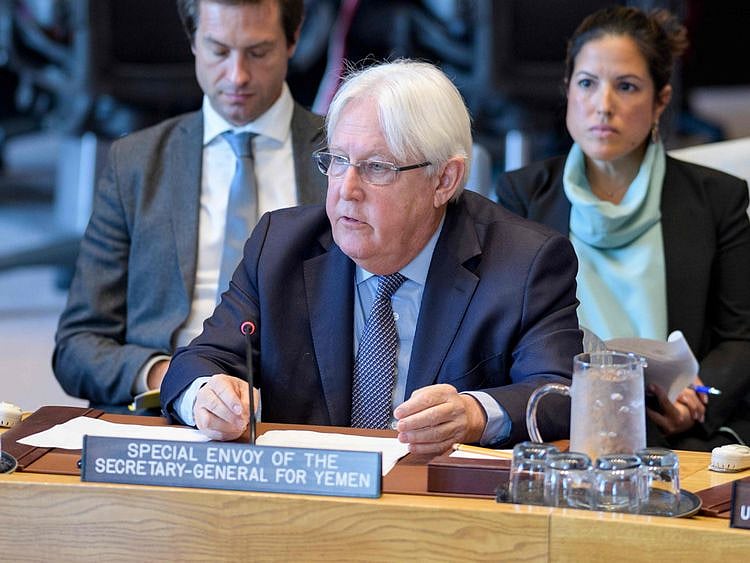Yemen government suspends talks with UN envoy Martin Griffiths
Yemen president Hadi to meet UN Secretary General Guterres after Eid holiday

Also In This Package
Cairo: Yemen’s internationally-recognised government has temporarily stopped dealing with UN envoy Martin Griffiths over alleged bias to Iran-aligned Al Houthi militants, Dubai-based television Al Arabiya reported Monday.
The move comes days after Yemeni President Abd Rabbo Mansour Hadi accused Griffiths of committing “transgressions” while doing his job as a peace mediator in the war-racked country.
Hadi made the accusation in a message he sent to UN Secretary-General Antonio Guterres.
A meeting between Hadi and Guterres or a representative is expected to be held after the holiday of the Muslim Eid Al Fitr, which starts next week, according to Al Arabiya.
“Dealing with Griffiths will be delayed until this meeting is held,” an unnamed Yemeni official said, adding that the government asked that the meeting be held without the envoy’s attendance.
The government also wants “guarantees” that Griffiths will not repeat his “excesses”.
Yemeni officials have repeatedly expressed dissatisfaction with the performance of Griffiths, a former British diplomat, who was appointed in the post in February last year.
In his message to Guterres, Hadi noted Griffiths’ approach to Al Houthis as a de facto government equal to the internationally-recognised administration.
On Sunday, Gueterres promised the UN would maintain its impartiality and would address the government's "legitimate" concerns.
Hadi said that the UN envoy is so ignorant of Al Houthis’ ideological and political leanings that he is incapable of handling Yemen’s crisis, according to Al Arabiya.
The Yemeni leader also accused Griffiths of failing to address key issues in a peace deal reached between the government and Al Houthis in Sweden in December including the swap of prisoners.
The UN-brokered agreement has since bogged down over the extremists’ procrastination and a perceived lack of UN firmness.
Yemen’s conflict erupted after Al Houthis unseated the Hadi government and overran parts of the country, including the capital Sana’a, in December 2014.
In March, 2015, an Arab alliance led by the United Arab Emirates and Saudi Arabia, intervened in Yemen in response to a request from the government after Al Houthis advanced on the southern city of Aden, the country’s provisional capital.
Sign up for the Daily Briefing
Get the latest news and updates straight to your inbox
Network Links
GN StoreDownload our app
© Al Nisr Publishing LLC 2025. All rights reserved.